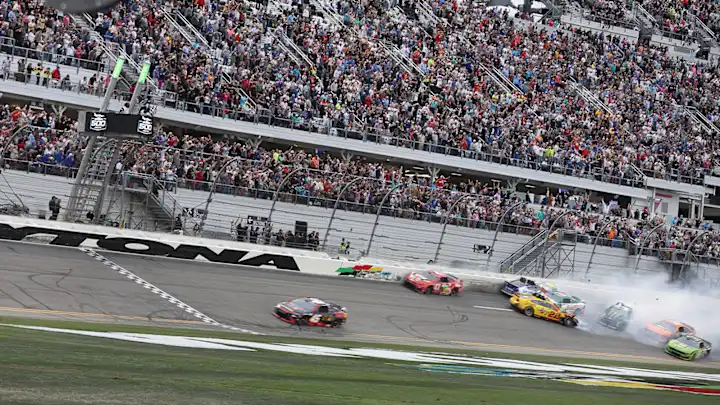
A major injury during a competition or practice can represent a real setback if you’re an athlete. Spending time laid up in bed can be mentally difficult, too, as you’re unable to participate in the game you love and may feel isolated without the support of your teammates.
However, if you want your recovery to go well, you’ll need to embrace a positive, optimistic outlook. This will help you stick with your rehab plan and make the most of the time you have to spend healing from surgery.
You can further enhance your efforts to return after an injury by using nutrition to supercharge your healing. Even simple changes, like drinking more water or increasing your protein intake can have a profound impact on your recovery time and mental health. This will increase your chances of returning stronger and fitter than you have ever been before.
Surgery Recovery
A major surgery is more than a bump in the road. You can’t out-tough a torn ACL and should never try to play through an acute injury that should be treated by a medical professional. This can be tough to accept, but it is crucial to understand if you are to take rehab seriously and give your body adequate time to rest and recover.
Unfortunately, surgery can be expensive, too. Even in-network surgeries can rack up a bill well into the hundreds of thousands if you need to be anesthetized during the operation. This can add to your frustration if you’re an unpaid student-athlete, or simply play sports as a hobby rather than at the professional level.
Furthermore, recreation athletes who get injured recover slower than the pros. This isn’t because professional athletes have some kind of genetic advantage. Rather, it’s because pro athletes are supported by a team of medical professionals, athletic trainers, and nutritionists. While you can’t necessarily hire a fleet of athletic trainers to treat your injury, you can put yourself in a prime position to recover quickly by eating enough of the right foods.
Basic Nutrition Protocols
If you’re an athlete, you should already have a basic understanding of nutritional concepts like calories and macronutrients like protein. This is because eating well helps you excel in your sport and ensures you are properly energized when you return to play. However, you may need to revise your diet when recovering from an injury.
This sentiment is echoed by recent research published in the peer-reviewed journal Nutrients. Researchers explain that an “adequate and balanced diet is of utmost importance in recovery and rehabilitation,” but that many folks over or underestimate how much they need to eat when laid up with an injury. Rather than overlooking the crucial role that calories and macronutrients play in injury recovery, these researchers also suggest that athletes find a dietary regime that helps them maintain their muscle mass without gaining fat during injury recovery.
However, determining the right energy balance and macronutrient intake for you can be tricky — particularly if you don’t have a good grasp on nutritional basics. Rather than relying on guesswork, invest some time and effort into learning about the fundamentals of nutrition. This will help you understand the value of the basic food groups, which include:
- Vegetables: dark greens like kale and broccoli are crucial for injury recovery. You’ll need at least 2 ½ cups of vegetables per day to meet your dietary needs.
- Fruits: Berries, pome fruits, and bananas are among the best energy sources available to you. You’ll need around 2 cups of fruit per day to keep yourself in top shape and should consider alternating between fruits to fulfill all your nutritional needs.
- Grains: Rice, pasta, quinoa, and bread give your body the bulk of its energy. That’s because grains are high in carbohydrates, meaning you’ll always have the resources necessary for rehab work.
- Proteins: Meat, fish, beans, and soy products are all high in protein. Increasing your protein intake after an injury is particularly important, as filling yourself up with high-protein foods minimizes your risk of gaining excess fat and gives your body the nutrients it needs to repair properly.
- Oils: Eating high-fat foods like olive oil and canola oil ensures that you have enough fatty acids to function properly. This can make a world of difference to your mood and energy levels if you’ve been on an ultra-low-fat diet for too long.
As you’re optimizing your diet with the above foods, do your best to avoid or limit alcohol intake. Alcohol affects your body’s systems integral to recovery, including your immune system, and excessive alcohol use can lead to issues such as gastroesophageal reflux (heartburn).
If you suspect your diet is hindering your progress, speak to a nutritionist who can evaluate your eating and drinking habits. They’ll be able to identify problems with your macronutrient balance and suggest changes that will serve you well when you return to play.
Working with a nutritionist can actually help you avoid injury in the future, too. They’ll be able to put together a dietary plan that ensures you’re well-fed and properly hydrated when it comes time to play. This can minimize fatigue and help you put your best foot forward when you finally get back on the field.
Conclusion
Finding a way back to the field after a major surgery can feel like you’re fighting an uphill battle. However, the right nutritional approach can keep you lean and improve your overall wellness. This is crucial if you want to return to play while feeling energized, strong, and mentally content. You can use the lessons learned during recovery to improve your diet and may find that the time away from the field sets you up well for future success.
Author Profile
Latest entries
 GolfDecember 13, 2024Game On: How to Optimize Your Performance on the Golf Course
GolfDecember 13, 2024Game On: How to Optimize Your Performance on the Golf Course BusinessNovember 23, 2024How To Get Your Personal Trainer Business Off The Ground
BusinessNovember 23, 2024How To Get Your Personal Trainer Business Off The Ground FitnessOctober 25, 2024The Athlete’s Diet: How Nutrition Fuels Peak Performance
FitnessOctober 25, 2024The Athlete’s Diet: How Nutrition Fuels Peak Performance EducationOctober 1, 2024The Role of Leadership in Team Building: How Coaches Inspire Collective Greatness
EducationOctober 1, 2024The Role of Leadership in Team Building: How Coaches Inspire Collective Greatness






